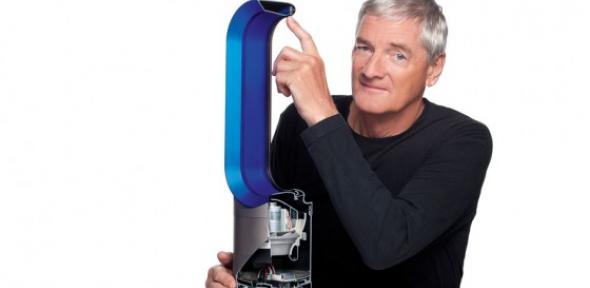
In a £1.4m deal Dyson is funding a Cambridge University, Department of Engineering professorship to support breakthrough engineering and scientific research over the next decade.
Britain needs bright ideas. We need more British students to take on research projects at British universities; we are struggling to fulfil our engineering needs. Forging working relationships with universities will help us solve our engineering challenges. And continue to export the best technology.
James Dyson
James Dyson said: ‘Britain needs bright ideas. We need more British students to take on research projects at British universities; we are struggling to fulfil our engineering needs. Forging working relationships with universities will help us solve our engineering challenges. And continue to export the best technology’.
Dyson already funds post doctorate research at Cambridge, specialising in airflow, acoustics and carbon nanotubes. Often the relationship continues through to employment at Dyson’s UK research laboratories, with postgraduates receiving a joining bonus.
In his report for the Conservative Party, Ingenious Britain, James Dyson stressed the need to harness the research breakthroughs in universities. Linking universities with industry would protect the excellence of British research; commercialising ideas creates patentable technology and exports.
The Dyson Professorship
The newly appointed Dyson Professor of Fluid Mechanics will focus teaching (of both graduates and undergraduates) and research on the science and engineering behind air movement – an existing area of Dyson expertise – pioneering innovative technologies for high efficiency and low noise in the power ranges typically found in domestic, office and light industrial applications.
Philip Guildford, Director of Research in the Department of Engineering said: “High power applications, such as jet engines and aircraft, have naturally dominated research in fluid mechanics yielding impressive returns in efficiency and performance.
“The Dyson chair will bring world-class resources to bear on the smaller fans, compressors and other air moving components that pervade our lives in factories, offices, and homes. Some are hidden away in computers, printers, just behind the dashboard in our cars or buried within manufacturing processes. Others are more easily seen in our fans and cleaners. But try adding up how many we see in a day and imagine the impact of making them all smaller, more efficient and quieter.
“The Dyson chair aims to achieve this impact and inspire a generation of new engineers in the process.”
The Dyson Studentship
PhD and MPhil studentships will support the Professor’s research programme through investment in innovative research ideas and attracting talented young engineers to develop new technology.
This funding follows a donation by the James Dyson Foundation last month, totalling £1 million over three years, to encourage post graduate students at University of Bath, Bristol, Cambridge, and Imperial College London from September 2011.

